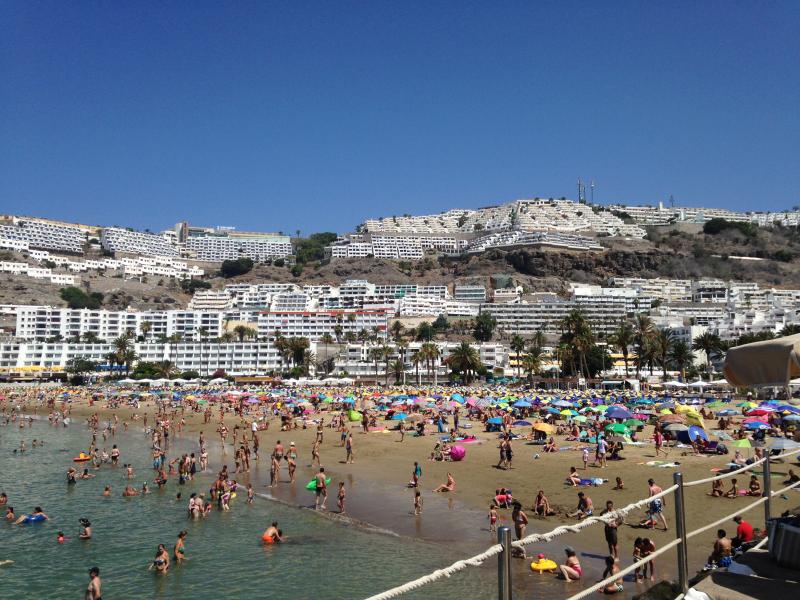You think Rehoboth is busy in July? The first time I heard a travel agent speak about European travel to a group of Americans she said, “Don’t compare your accommodations to your own country, but rather accept the fact that many things will be different, including your pillow. Just enjoy the experience.”
I abandoned my Posturepedic pillow to visit my daughter, her wife and my granddaughter in the city of Las Palmas on the island of Gran Canaria, the second most popular island in the Canaries after Tenerife. We are 93 miles off the northwestern coast of Africa. One does not fly direct.
There is much to say about the beauty and culture of Spain, but the island is quite special and very different from a large city like Madrid or Barcelona. Imagine a tourist visiting Hawaii versus New York City or Burlington, Vt. Spain is a vast country like ours.
Las Palmas is the capital of Gran Canaria and home to about 900,000 residents. I boast that I live in Lewes, Delaware, the first town in the first state. Las Palmas was founded in 1478 by the Castilian army, and Christopher Columbus anchored here in 1492. The name translates to island of the dogs, which were actually a variety of monk seals, now extinct.
The island is called a miniature continent because of the different climates and variety of landscapes. A bit like driving from Phoenix to Flagstaff, Ariz., or traveling from Denver up into the mountains of Colorado.
You think Rehoboth is busy in July? Gran Canaria boasted 3.6 million visitors in 2014. Europeans come here for the warm climate just as we might venture to Florida in the winter.
The average high temperature on the island is 70 degrees year round and 60 degrees for the low. No one uses air conditioning, and the breezes are delightful every night. The average rainfall is just under six inches for the entire year.
The wines are exceptional, and most bottles are between 5 and 10 euro. If you stop at a café, the cost of a glass of a good Rioja is two and a half euro. Your white wine will be an Albariño, the grape grown here, not your chardonnay. Less than 4 euro a glass.
There is food traditional to the Canaries but my favorite is papas arrugadas (small wrinkly potatoes boiled in salt water) served with a red Mojo sauce. Tourists buy this garlic, oil and spicy sauce to bring home to enjoy just as we might purchase Dolle’s Salt Water Taffy.
Americans have trouble adjusting to the meal times in Spain, as restaurants do not open until at least 8:30 for dinner, and the largest crowds arrive between 9 and 11. They take lunch about 3 in the afternoon. Cafes are on every corner and often right next to each other where young and old stop for café solo or a cana (small glass of beer) throughout the entire day.
One of the biggest differences between our cultures is the attitude toward service. In Spain, you relax and enjoy your meal, often for several hours until you ask for the check. A waiter would be considered rude to bring it automatically.
Hospitality rules over turning a table to earn more tips, because the industry provides a fair wage. It is not customary to tip servers 15 or 20 percent. You may choose to leave an extra few euro or maybe 10 percent for exceptional service.
If you visit Spain, expect to change your bedtime! Sit at a one of a hundred cafés and talk and laugh beyond midnight! At home, I go to bed by 10:30. When I travel to Spain, I don’t ever notice the time. I just enjoy the experience!





















































